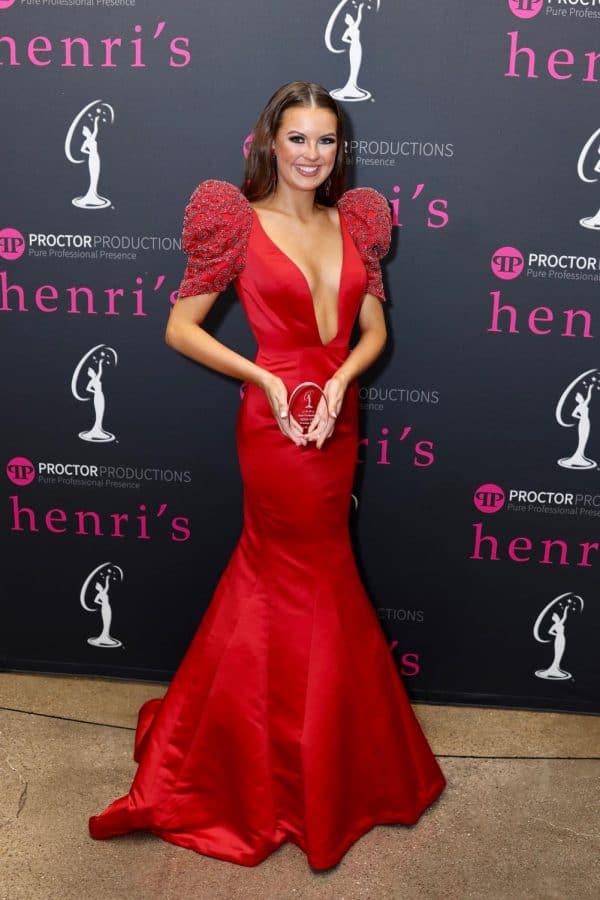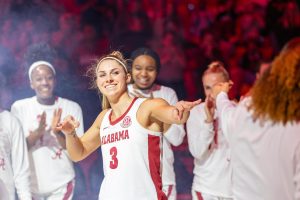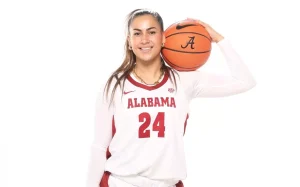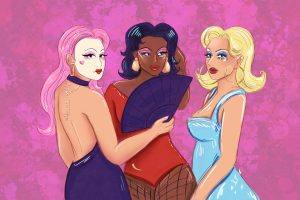Pageant and modeling industries fail to address mental health
June 22, 2022
Beauty standards in America have created a desire for others to fit an ideal and unattainable vision of beauty: one that focuses on being tall, thin, tan and blonde while neglecting diversity of any kind.
The pageant industry is one that has historically pushed these unhealthy standards since its inception in the 1800s, with the birth of swimsuit competitions, fitness routines and other appearance-based methods of rating contestants.
With the suicide of 2019 Miss USA Cheslie Kryst earlier this year, there has been a spotlight on the pageant industry and its failure to address the mental health crisis within the pageant, modeling and fashion industries.
Kryst was known for speaking out about diversity and issues such as microaggressions on her TikTok page.
Talking about mental health issues or eating disorders is not common in the field of modeling or in the pageant industry, it is often swept under the rug if it is ever brought up to have the image of brands.
Ally McCaslin, a UA senior majoring in addiction and recovery, has been in the pageant world since she was in the sixth grade and said it can be a brutal place when it comes to women’s mental health.
“This can be really bad for those that already have issues with mental health, it can really have a negative impact,” McCaslin said.
McCaslin won Miss South Carolina Teen in 2017 and went on to compete in Miss America’s Outstanding Teen. McCaslin was diagnosed with anorexia nervosa in 2018 shortly after her back-to-back pageant victories.
“It was extremely unhealthy and the sole reason that I was going through that was looking back on comments that others had made about my eating habits or my appearance,” McCaslin said.
McCaslin said she felt ashamed when she was first diagnosed with her eating disorder.
“I didn’t want to tell anyone what was happening,” McCaslin said. “I don’t think I ever had a conversation with the organization about mental health or my eating disorder, simply because I don’t think it was of their interest.”
McCaslin has now stepped away from the pageant world and said it was the best decision for the sake of her mental health.
Courtney Rager, a Murray State University alum who has competed in fair and state pageants since 2010, said she was drawn to the pageant world to meet other girls her age, but soon took notice of the comparison between girls.
“As much as you want to say you don’t compare yourself, it is easier said than done,” Rager said. “You might catch yourself not trying to be the best version of yourself and instead trying to be like someone else.”
While many pageants no longer host swimsuit categories, Rager said it took a lot of work to enter a comfortable and safe mentality before going on stage.
“I really had to open up and be comfortable wearing a two piece bathing suit in front of so many people,” Rager said. “Being mentally fit enough to be able to do that is tough, it is something I still personally struggle with right now.”
The pageant industry is only one of several demanding and visible career paths that can have devastating effects on people.
Jordan Moore, a model, actor and artist from Huntsville, Alabama, said the silence on mental health in the modeling industry makes those who are struggling feel less inclined to share their stories.
“Often, it’s not the fact that individuals do not care about what’s going on with models. More times than not, it’s because the public doesn’t know or haven’t been exposed to the issue to even help raise awareness about it,” Moore said. “It all starts with intentional and purposeful education and awareness.”
While recent years have seen an increase in inclusivity, many marginalized communities are still underrepresented in these fields.
In the 2021 State of Diversity, Equity & Inclusion in Fashion survey by McKinsey & Company, it is stated that black employees report greater inaccessibility to the fashion industry compared to white employees.
“There is an overarching lack of awareness of the breadth of opportunities within the fashion industry,” the study states.“This is especially true in low-income communities, communities of color, and the pre-college pipeline.”
Companies and talent agencies tend to hire models that meet unattainable and exclusive demands, blacklisting people of color and plus-sized models from opportunities while simultaneously rejecting their physical appearances.
Moore said those who may consider themselves overweight, underweight, too short or too tall often have hard times consistently going out to model calls or reaching out to agencies.
According to the Mental Health Foundation in 2019, research has found that higher body dissatisfaction is associated with a poorer quality of life, psychological distress and the risk of unhealthy eating behaviors and eating disorders.
“I have seen so many people become obsessed with losing weight, covering themselves with makeup, having body or facial alterations just to meet a certain standard, only still to be told no or have the door slammed in their face,” Moore said. “Some have become depressed because they completely lose themselves or become sick. It’s very important to know and understand that you will be told no sometimes, but to not let that determine your value.”
Despite some of the mental health struggles this industry can cause, many people believe pageants can provide confidence and personal development for both younger and older women.
Chaney Scott McCorquodale, a UA sophomore majoring in news media, is currently Miss Baldwin County and has been competing in pageants her whole life.
“I am really passionate about community service and that is what I love most about Miss America,” McCorquodale said. “You have an opportunity to start a social impact initiative and have a platform to share about a cause you are really passionate about.”
McCorquodale said many girls make their social impact initiatives focused on mental health and attributes the growth of her confidence and personal development to the pageant industry.
“It can be a little bit stressful but you do it because it is fun. I have made my best friends through pageants and it is an experience I recommend to everyone,” McCorquodale said. “It has really helped me build my confidence, I feel really comfortable in front of one person or even 1,000.”
Moore said he believes things are changing to be more inclusive for all body types.
“Look at what Rihanna is doing with her fashion shows. It is so inclusive to all body types and it’s expanding the industry and the perception of what is generically considered beautiful,” Moore said. “On the mental health side of it all, I believe that this also goes hand in hand with what Rihanna is doing, with being so inclusive. Expanding and challenging the perception has and is strengthening mental health and the micro effects of not being wanted, chosen or even desired in the modeling industry.”
Moore said, like anything, representation matters.
“Being able to see yourself ethnically, gender wise, race wise, etcetera, not only does well for the mind but for self esteem. It makes it that much more possible to achieve,” Moore said.





















